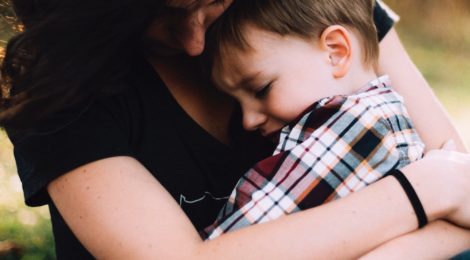
Supporting Parents After a Child’s Cancer Diagnosis
Does time really heal all wounds? As the parent of a child who was diagnosed with cancer, I know that some wounds never do heal completely. Although my son has been in remission for a couple of years, I am still dealing with the trauma of his experience.
“Your child has cancer” is something no parent imagines they will hear. Many experience an onslaught of emotions after the diagnosis. But parents become proactive quickly. The focus becomes appointments, scans, medications, and reassuring the child. Throughout, little attention is paid to parent wellbeing. Many parents live with that trauma for years without support.
Tina Smith, a registered psychotherapist, social worker, and a parent of a childhood cancer survivor, shares:
“There is often an assumption that once a child is done with treatment, families can then move on to have a ‘normal’ life. But sadly, this is not the case for most. The aftermath, for many families, results in flashbacks, fears, anxiety, reliving the traumatic experience, insomnia, and for some, PTSD.”

As parents, we want to have control over what our children go through. If things go wrong, we try to fix them. That is, until we’re faced with something as scary as cancer, where we feel like an observer in a crowd, helpless to end the child’s suffering.
Although hospitals have mental health practitioners available, their involvement is geared more toward the children, and there is a lack of emotional support for parents and families. Smith adds:
“The only access to a mental health practitioner in the hospital is the social worker. This person’s role is to provide connection to community and in-hospital resources, such as parking passes, gift cards, and Ronald McDonald House (family room at Sick Kids) access. A social worker only provides case management, not therapeutic and ongoing support.
During my son’s treatment, I remember asking my social worker whether I could see a psychologist. My question was brushed off.
Smith explains that what is needed first is the development of formal psycho-educational programs, along with therapeutic support for parents. Families often believe that the ordeal is over once treatment is done, yet they walk out of the hospital and face ongoing symptoms such as lack of sleep, anxiety, and continuing fear. A proactive solution is to teach parents the signs of potential distress post-treatment, as well as the steps they can take to decrease the likelihood of lasting trauma. This approach, together with normalizing therapeutic support during and after treatment, would better equip parents to help themselves and their children. Smith says:
“Every family should be given an opportunity to access treatment with a mental health worker, whether within the hospital or through funding towards therapeutic support in the community. The hospital lacks understanding of the tremendous impact of medical trauma on parents and children, as the medical model tends to take precedence over mental health for parents.”

My own wounds are still there. They remind me of children who are still battling their journey with cancer, and they push me to advocate for families who are in a state of powerlessness, fear, and helplessness.
– Fatmah Jahim, Contributing Writer
Image Credits:
Feature: Jordan Whitt at Unsplash, Creative Commons
First: Nevin Ruttanaboonta at Unsplash, Creative Commons
Second: Marco Ceschi at Unsplash, Creative Commons



